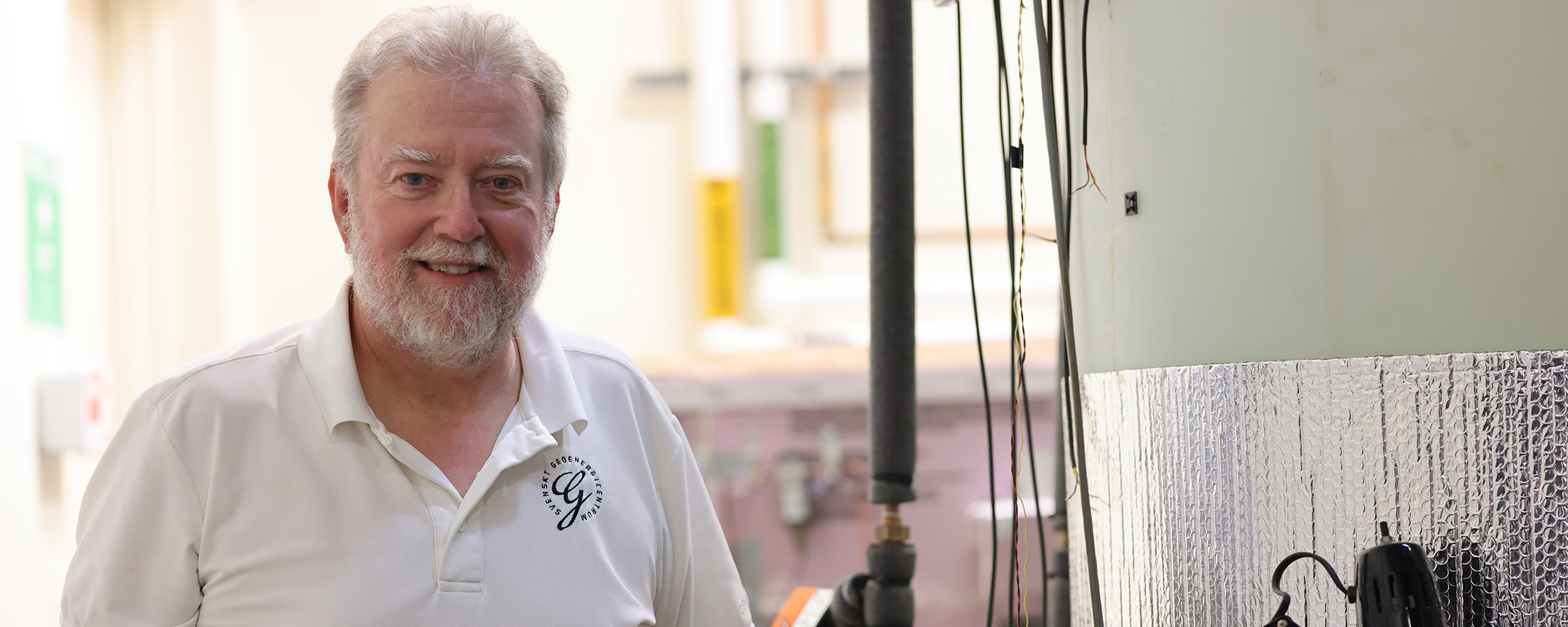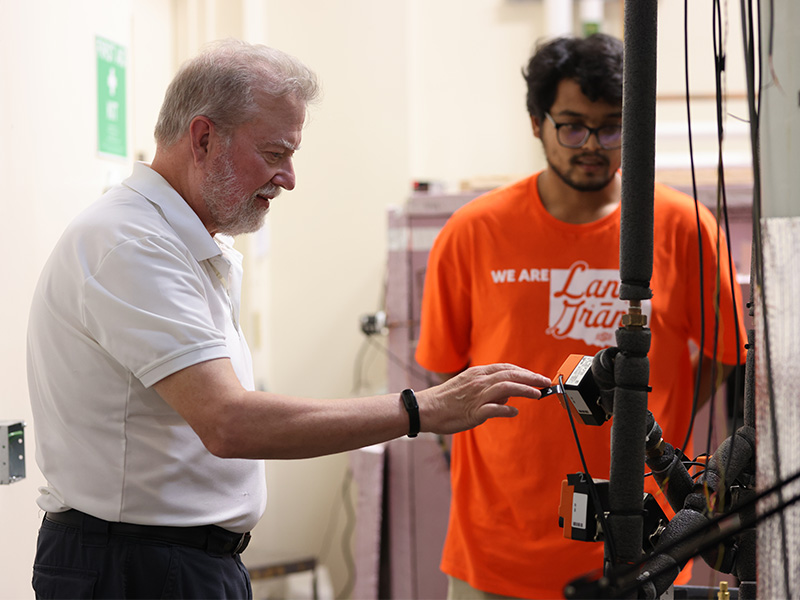
Pioneering Energy Solutions: The work of Dr. Jeffrey D. Spitler at Oklahoma State University
Monday, October 13, 2025
Media Contact: Kristi Wheeler | Manager, CEAT Marketing and Communications | 405-744-5831 | kristi.wheeler@okstate.edu
In an era defined by the urgent need for sustainable energy solutions, few researchers have made as profound an impact on building energy efficiency and geothermal technology as Dr. Jeffrey D. Spitler.
A Regents Professor and the OG&E Energy Technology Chair at Oklahoma State University’s School of Mechanical and Aerospace Engineering, Spitler has dedicated his career to advancing research that bridges academic innovation with real-world applications.
Spitler earned his B.S., M.S., and Ph.D. in mechanical engineering from the University of Illinois at Urbana-Champaign, completing his doctorate in 1990. Shortly thereafter, he joined OSU, where his career has flourished for more than three decades. Today, he is internationally recognized for his expertise in building environmental systems, thermal system analysis and ground-source heat pump technologies.
At the heart of Spitler’s research lies a commitment to energy efficiency and sustainable building systems. His work has focused on several critical areas, including:
- Ground-Source Heat Pump Systems: Developing innovative approaches to the design and optimization of ground heat exchangers.
- Thermal Systems Analysis: Advancing simulations and tools that allow engineers to evaluate building energy use with greater precision.
- Building Load Calculations: Improving methods for heating and cooling load analysis that are now widely used in engineering practice.
- Performance Monitoring: Creating better ways to measure and evaluate long-term performance in buildings.
One of his most notable contributions has been the development of GLHEPRO, a software tool for designing ground heat exchangers. This tool has helped countless engineers implement geothermal systems more effectively and at lower costs.

In recent years, Spitler has turned his attention to the potential of borehole fields that mix optimally positioned angled and vertical boreholes — an approach that can save space and reduce drilling costs in geothermal projects. His team is developing algorithms to automate and optimize angled borehole design, offering promising solutions in areas where traditional vertical drilling is not feasible.
This research, funded by federal initiatives and industry partners through OSU’s Center for Integrated Building Systems, is expected to transform how ground-source heat pump systems are deployed nationwide.
Spitler’s expertise has also been instrumental in large-scale geothermal projects. OSU is part of a U.S. Department of Energy initiative, led by Oak Ridge National Laboratory, to expand geothermal heating and cooling at federal sites. Spitler and his team are focused on improving design software and modeling for both underground and above-ground components, as well as addressing the influence of groundwater flow on system performance.
Spitler’s groundbreaking work has earned him widespread recognition. He is a Fellow of both the American Society of Heating, Refrigerating and Air-Conditioning Engineers and the International Building Performance Simulation Association. In 2023, he received the prestigious Peter Ritter von Rittinger Award from the International Energy Agency — one of the highest honors in the fields of air conditioning, refrigeration and heat pumps.
His influence extends far beyond the United States. As a Fulbright Distinguished Chair of Alternative Energy Technology at Chalmers University in Sweden (2014–15), Spitler fostered international collaboration in sustainable energy research. He has also delivered keynote addresses at global conferences, including the European Geothermal Congress, and has served as a visiting or adjunct professor at several international institutions.
In addition to his research accomplishments, Spitler has shaped the next generation of engineers. At OSU, he has mentored graduate and undergraduate students, instilling in them the same spirit of curiosity and problem-solving that has defined his own career. Through the Building and Environmental Thermal Systems Research Group, he continues to advance projects that combine practical application with theoretical insight.
Looking forward, Spitler’s research addresses some of the biggest challenges in geothermal energy: scaling systems to serve entire districts, simplifying complex design tools for everyday engineering use and ensuring long-term system performance in the face of climate change. His work exemplifies how research not only advances academic knowledge but also delivers tangible solutions to global sustainability challenges.
From his pioneering software tools to his leadership in international collaborations, Spitler’s contributions stand at the intersection of science, engineering and sustainability. His work continues to inspire students, guide professionals and shape the future of energy-efficient building systems worldwide.
